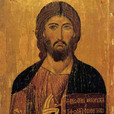
Summary: This week’s episode of Communio Sanctorum is titled, “God’s Consul .”One of the Roman Emperor Diocletian’s most important contributions to the Empire was to divide the top-tier leadership up so that it could rule more efficiently. The Empire had grown too large to be governed by a single Emperor, so he selected a co-Augustus & divided their regions of oversight between Western & Eastern realms. Since the issue of succession had also been a cause for unrest in previous generations, Diocletian also provided for that by assigning junior Caesars for both himself & his co-Augustus. When they stepped down, there would be someone waiting in the wings, pre-designated to take control. The idea was then that when their successors stepped into the role of being co-Augusti – they’d appoint new junior Caesars to follow after them. It was a solid plan and worked well while Diocletian was the senior Augustus. When he retired to raise prize-winning cabbages, the other rulers decided they liked power & didn’t want to relinquish it.Over the years that followed, rule of the Empire alternated between a single Emperor & Diocletian’s idea of shared rule. The general trend was for shared rule with the senior Augustus making his capital in the East at Constantinople. This left the weaker & subordinate ruler in the west with increasingly less power at the same time Germanic tribes pressed in from the North.What eventually spelled doom for the Western Empire was that Rome had forged treaties with some of those Germanic tribes; turning them into mercenaries who were armed & trained in the Roman style of war. When Rome stopped paying them to fight FOR Rome against their Germanic brothers & the Goths, it was inevitable they’d join them to fight against the rich pickings of the decaying Empire who could no longer field armies against them.We’ve seen previously, as the barbarians pressed into the Western Empire from the North & East, civil authorities had diminishing ability to do anything about them. People began looking to the Church to provide order. Because the Church was gifted with some remarkable leaders who genuinely cared about the welfare of the people, they managed to hold the decaying Empire together for a time. Pope Leo even managed to meet with the Hun leader Attila as he prepared to march on Rome. Leo persuaded the Huns to turn around, leaving the City intact. But Leo didn’t have as much luck with the Vandals who arrived a few years later. He did manage to persuade them to limit their sack to plunder & pillage. The population was saved from death & rape. After a 2 week loot-fest, the Vandals boarded their ships & sailed away - leaving the city otherwise unmolested.Historians mark the year 476 as the date when the Western Empire fell. It was then that the Goth leader Odoacer deposed the last Western Emperor, Romulus Augustulus. Odoacer is called a barbarian, but he was, in fact, a military leader in the Roman army; a mercenary who led a revolt against the very people he’d once fought FOR. While historians mark 476 as the year of Rome’s fall, for the people living at that time, they would not have seen much if any difference between the reign of Augustulus & Odoacer. Things carried on much as they had from the previous decades. Which is to say – it was a mess!With the Fall of Rome, the Western Empire moved into what we know as the Middle Ages. This was a time when the Church played an ever-increasing role in society. The form that influence took varied over the centuries; sometimes being more religious & spiritual in nature, at other times being predominantly political. But there’s no denying that in Europe during the Middle Ages, the Church played a major role.During the 5th & early 6th Centuries, as civil society disintegrated, people looked to alternatives. Some found an answer in monastic communities. There’d been communes of Christians since the 3rd C
